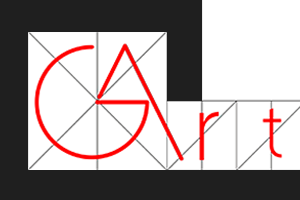Mimmo Rotella
About
Mimmo Rotella was born in Catanzaro on 7 October 1918. After completing his studies at the Academy of Fine Arts in Naples, in 1945 he moved to Rome, where, after his figurative beginnings, he developed an abstract-geometric style. In 1951 he held his first solo show at the Chiurazzi Gallery in Rome and obtained a Fulbright scholarship, thanks to which he went to the United States, where he attended the University of Kansas City for a year, creating a wall panel, exhibited at the Nelson Gallery in Kansas City and made a performance of phonetic poetry at Harvard University in Boston.
Returning to Rome in 1953, after a period of creative crisis, he realized that advertising posters, which are covering the cities, constitute an art form. This is how the first décollages were born, the opposite of collage. That is, while the collage operates a superimposition of images, the décollage operates a subtraction of the image through tearing and abrasions of the figures. The peculiarity of Mimmo Rotella’s work is that he also uses the back of the collage for which the “retro d’affiche” were born. In his early works, Rotella takes public billboards by ungluing them from their support, generally made of galvanized sheet metal, assembling them on canvas with a few tears that are however not random but performed with deliberate wisdom, in which, he continues his abstract research. Starting from 1958 he created the Cinecittà series using the faces of movie stars and the figures of movie posters; Marilyn Monroe in particular becomes an icon of his work. In 1961 at the invitation of the critic Pierre Restany he joined the movement of the Nouveau Réalisme, whose Manifesto had been published in 1960 by Restany.
The movement was founded in October at the home of Yves Klein, in the presence of Arman, Francois Dufrene, Daniel Spoerri, Jean Tinguely, Jacques Villeglè and Restany himself. Rotella takes part in the subsequent events of the group which are also joined by Niki de Saint Phalle, Gérard Deschamps and finally Christo. Three years later he moves to Paris, where he elaborates the “Mec-Art” process with which he projects negative images on the emulsified canvas. He then continued his research creating the Artypo series, typographic printing proofs chosen and glued freely on the canvas. In the 70’s Rotella experimented with two new techniques, the “Frottage” and the “Effaçage”. In the frottage, Rotella works with nitro solvents on the images taken from magazines and then transfers these images, widely discolored, onto a white sheet of paper by tracing; on the same sheet it also transfers several images. In the effaçage Rotella treats pages cut from magazines with solvents so that the image undergoes a discoloration until part of it disappears.
Subsequently these pages are pasted on canvas. Settled in Milan, in the eighties he started the series of Blanks, in which he covered the posters with monochrome sheets, and starting from 1984 he resumed painting, creating the cycle of works Cinecittà 2 and later the Sovrapitture, where he intervenes pictorially on advertising posters.
He exhibited at the Center Pompidou in Paris and at the Museum of Modern Art in New York in 1990 and at the Solomon R. Guggenheim Museum in 1994. In 2000 the Mimmo Rotella Foundation was born, with the aim of promoting contemporary art and preserving the work of the artist. He died in Milan on January 8, 2006.

#MIMMOROTELLA
- WEB


He exhibited at the Center Pompidou in Paris and at the Museum of Modern Art in New York in 1990 and at the Solomon R. Guggenheim Museum in 1994. In 2000 the Mimmo Rotella Foundation was born, with the aim of promoting contemporary art and preserving the work of the artist. He died in Milan on January 8, 2006.
Via Gobetti, 114
65121 Pescara (IT)
Tel: +39 349 791 3885
Mail: info@gartgallery.it
C.F. / P. IVA 02303380683
Via Gobetti, 114
65121 Pescara (IT)
Tel:
+39 349 791 3885
Mail: info@gartgallery.it
C.F. / P. IVA 02303380683
Via Piero Gobetti, 114
65121 Pescara (Italy)
Tel: +39 349 791 3885
Mail: info@gartgallery.it
C.F. / P. IVA 02303380683
OPENING HOURS
Monday to Friday
from 5pm to 7.30pm
Saturday
from 10am to 1pm
from 4pm to 7pm
Open also by appointment
Monday to Friday
from 5pm to 7.30pm
Saturday
from 10am to 1pm
from 4pm to 7pm
Open also by appointment
NEWSLETTER
Sign up today to know about special events and more!
Sign up today to know about special events and more!

